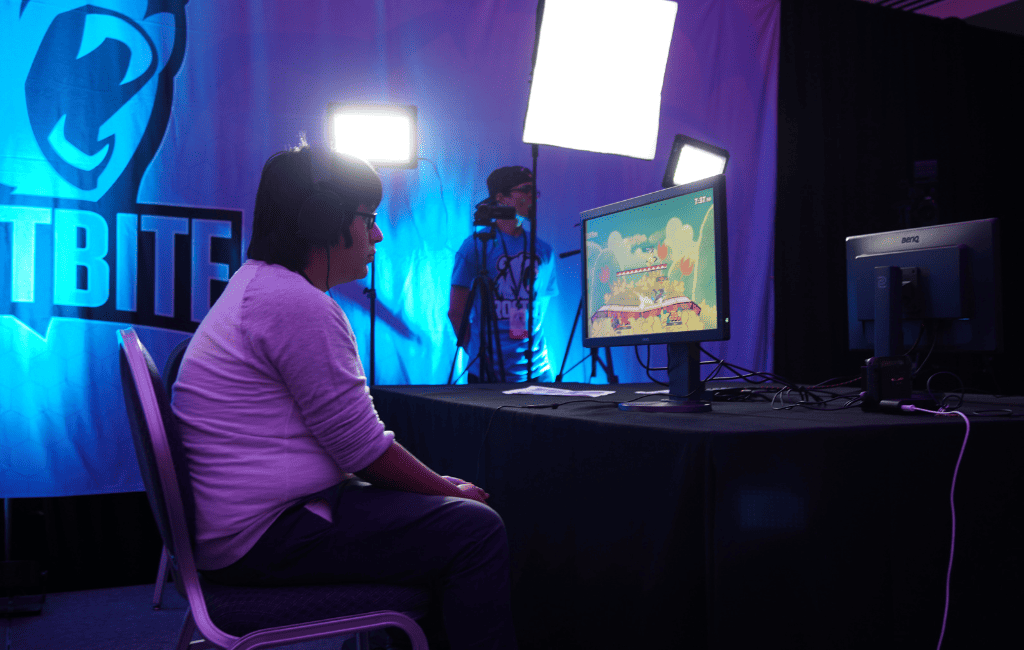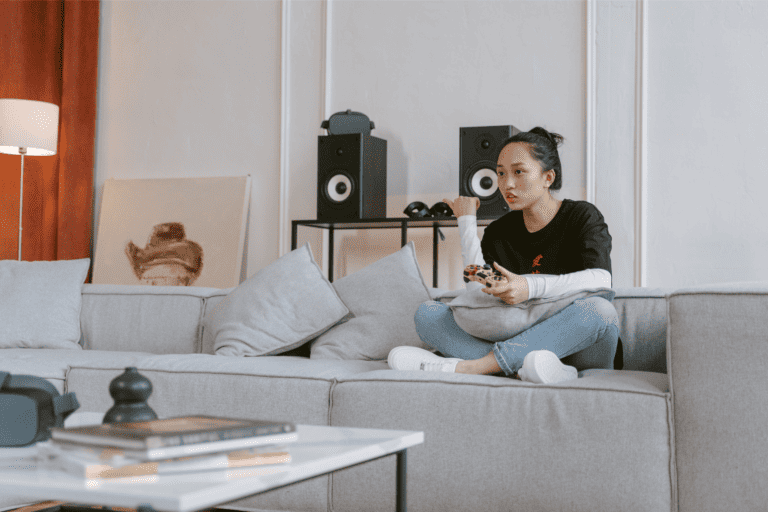
Can excessive gaming lead to obesity?
The immersive nature of video games often results in extended periods of sedentary behavior, where players spend hours sitting in one place, engrossed in their screens.
When you spend excessive amounts of time playing video games without engaging in other forms of exercise, you are at a higher risk of gaining weight.
According to health experts, excessive gaming ultimately leads to obesity. A recent study conducted at the University of Würzburg links video games and obesity in adults.
In this article, we’ll discuss how prolonged gaming can lead to obesity, ways to prevent it, and tips for engaging in healthy gaming habits
What’s the link between extended gaming and obesity?

Based on several years of research and studies, here are some factors that explain the correlation between excessive video game playing and obesity.
Lack of physical activity
The sedentary nature of video games is an essential contributor to the link between gaming and obesity. Time spent playing video games translates to extended periods of sitting or lying down with lower levels of physical activity. This lifestyle reduces the number of calories burned per day, leading to obesity, especially for gaming addicts.
Impact on sleep patterns
Excessive gaming, especially during late hours, also disrupts sleep patterns as a result of the blue light emitted from gaming screens. It suppresses the body’s release of melatonin, a hormone that induces drowsiness. While this promotes wakefulness during the day, it becomes unhelpful at night.
Exposure to blue light in the evening also tricks the brain into believing it’s still daytime, which disrupts circadian rhythms and leaves you feeling awake instead of tired. Consequently, this disruption in sleep patterns can lead to both poor sleep quality and insufficient sleep duration, contributing to obesity.
Note:
Blue light sources are not limited to video game consoles; they can be found in various everyday devices such as fluorescent lights, LED lights, smartphones, televisions, computer screens, tablets, and even e-readers.
Unhealthy eating habits
A study featured in the American Journal of Clinical Nutrition found that excessive food consumption after video game sessions was a common phenomenon, even when gamers did not report heightened feelings of hunger or appetite control. This behavior contributes to the development of a higher body mass index in gamers.
Extended gaming sessions exist side-by-side with poor dietary choices. The lack of attention to balanced nutrition during and after gaming sprees has a significant contribution to long-term weight gain, increasing the risk of obesity and related health problems.
Psychological factors
Playing too many video games can lead to addictive behavior, which means gamers start choosing games over important things like exercise and eating well. This addiction-like relationship with games negatively impacts mental health and contributes to a sedentary lifestyle.
Likewise, the stress and frustration that accompany intense gaming sessions can trigger impulsive eating as you seek emotional comfort through food. The sequence of constantly using food as a coping mechanism contributes to weight gain over time.
How to prevent gaming-induced obesity?

Preventing gaming-induced obesity requires a proactive approach. Here are a few strategies to counter the unpleasant health outcomes of sedentary video game play.
Integrate physical activity breaks
This is often easier said than done for most gamers. However, it’s crucial to break your sedentary habits by incorporating short physical activity breaks during gaming sessions. Set a timer to remind yourself to stand up, stretch, or do simple exercises like jumping jacks or squats. Even a few minutes of movement can help break the cycle of prolonged sitting and boost your metabolism.
Set and adhere to time limits
Like taking breaks, establish clear time limits for your gaming sessions, and stick to them. Use alarms or notifications to remind you when your gaming time is up. This practice prevents excessive sedentary behavior and allows for a more balanced schedule that includes physical activity, social interactions, and time for other responsibilities.
Create an active gaming environment
Integrate active gaming options that require physical movements, such as dance or fitness games, into your daily schedule. These types of games can make exercising fun and enjoyable while still indulging in your gaming hobby.
Similarly, ensure your game workstation is optimized to improve efficiency and boost your health needs. This includes organizing your video games and accessories properly and using the right furniture.
Design a comfortable gaming space
Set up an ergonomic gaming environment that encourages movement. Use a standing desk, stability ball, or balance board to keep your body engaged even while gaming. Alternate between sitting and standing to reduce the negative effects of prolonged sitting.
Practice mindful eating
Avoid unreasonable snacking while gaming. If you feel hungry, take a break to have a proper meal or snack away from the gaming setup. This practice helps you pay attention to your food choices and prevents overeating. Additionally, focus on balanced nutrition by choosing nutrient-rich snacks and meals that support your energy levels and overall well-being.
Expert advice:
To promote optimal sleep quality and manage appetite effectively, it is advisable to stick to a consistent sleep routine. This practice helps regulate the release of hunger-related hormones and minimizes the desire for less nutritious food options.
Don’t be too hard on yourself
Take baby steps, and set achievable gaming and physical activity goals. This balance will allow you to enjoy your gaming hobby while maintaining a healthy lifestyle.
You can only effectively mitigate the negative impact of excessive gaming on your physical health by maintaining a balanced lifestyle and reducing the risk of gaming-induced obesity.
So, plan outdoor activities like walks, hikes, or sports to counterbalance gaming sessions. Engaging in nature and physical activities reduces sedentary time and provides a refreshing change of scenery and some dopamine release.


Leave a Comment